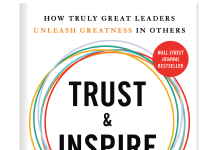
The aim of this short article is to personally comment on the importance of the ‘individual learner experience’ within the context of short one to five vocational education and training days, for both the training provider and the tutor/assessor.
Most experts in the field will comment that an ‘experience’ is a service with ‘positive feelings.’ These feelings are inherently personal to the individual receiving the service, and will unquestionably drive their behavior.
Adult Learner vs. Individual Experiences
The adult learner will judge their own individual experience with a tutor or training provider by comparing their expectations of the learning received to their perceptions of what they have had, or are currently receiving. Understanding the importance of these unique positive experiences is vital for vocational training providers, tutors, and assessors, as it directly relates to the feelings that an individual learner has towards their learning, the training provider, and the tutor/assessor.
Providing vocational education and training is not easy – in fact, it is very complex and requires an exceptional level of understanding about the vocation itself, the qualifications, awards, or workshops that are being delivered, and of adult teaching and learning. Providing unique learning experiences is a demanding and ever-shifting undertaking, however, there are some fundamental factors that are essential and need to be considered. In most cases, these factors can be monitored and assessed internally. Learning experiences are partly down to building and maintaining effective relationships that promote feelings of safety, comfort, value, and worth within the learner.
Adult learner wants to feel safe and comfortable in their surroundings. If they do not feel safe, then learning will be a challenge and their overall experience will not be positive. To learn effectively is in some ways a leap of faith into the unknown, so time MUST be spent on establishing a safe and comfortable learning environment. If individuals are going to ‘unlearn’ redundant theories and concepts, stretch themselves, make mistakes and explore new ways of thinking as well as skills and behaviors, that will enhance their employability, then it is a ‘must’ that they feel comfortable and safe within the learning environment.
Learning in the “Doing”
All learning is in the ‘doing’ not the viewing and the adult learner must feel a sense that they belong. They must be active and engaged both in the learning process and the checking of understanding, skills, and behaviors. If the adult learner does not feel as if they belong they will not contribute, so their chances of learning will diminish as will the learning of those around them. The adult learner will bring with them varied points of view that will contribute massively to the overall learning and, if not shared, the overall learning is affected.
The adult learner will have specific wants and needs from the learning that add individual value and worth to their experience. These specific wants and needs should be explored early during the learning, and reinforced throughout. This will hopefully make the learning experience feel more personal and rewarding for the individual. The adult learner is entitled to expect a variety of different learning approaches, to ensure real-world understanding, comprehension, and application. In turn, this adds huge personal value to the overall experience and creates feelings of worth.
They expect guidance and support throughout their learning journey, as well as detailed balanced feedback on their personal progression, again adding feelings of worth and value.
The need to strive for developing a unique learning experience alongside quality, evidence-based, real-world vocational learning cannot be underestimated.
Continually working on developing the learner’s experience is vital for both vocational training providers and tutor/assessor/quality assurers, as it directly relates to the feelings that an individual learner has towards their learning, the training provider, and the tutor/assessor/quality assurer.




